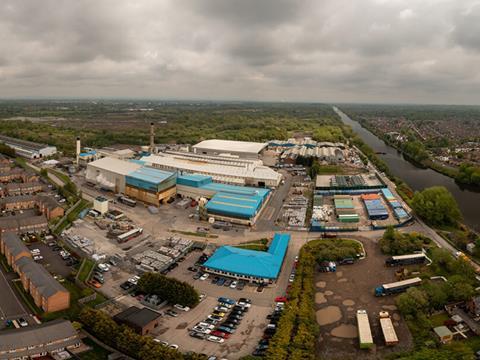
Novelis, a leading aluminum producer and recycler, has been awarded a £4.6 million grant from the UK Government to trial the use of hydrogen as a power source for its recycling furnaces.
The grant has been awarded as part of the UK’s £55m Industrial Fuel Switching Competition, which is, in turn, part of the £1bn Net Zero Innovation Portfolio (NZIP), and the regional HyNet decarbonisation project.
Novelis joined HyNet in 2017 and has been supporting the development of the regional infrastructure project as well as conducting its own technical feasibility studies on the use of hydrogen as a direct replacement for natural gas.
“Switching to renewable energy sources is a key initiative to advance on our journey toward carbon-neutral production. Besides decarbonizing our own facility, this collaboration drives the industrial decarbonization of the whole North-West region in UK,” says Emilio Braghi, Executive Vice President at Novelis and President at Novelis Europe.
“We are proud to be one of the pioneers using hydrogen within the aluminium industry and that these trials at Latchford will additionally advance research on the viability of integrating hydrogen power in our recycling operations around the world,” Allan Sweeney, Plant Manager at Novelis Latchford.
With the recently-awarded grant by the Department for Energy Security & Net Zero, Novelis’ Latchford plant will test the use of hydrogen on one of its recycling furnaces in a demonstration phase in 2024.
The trial has been up in collaboration with Progressive Energy, an independent UK energy company, and requires the installation of new burners and regenerators – both capable of operating with hydrogen or a blended hydrogen/gas input – and replacing the furnace lining material with one suitable for hydrogen.
Depending on the final configuration, replacing natural gas with hydrogen to feed the remelting furnace could reduce CO2eq emissions by up to 90% compared to using the same amount of natural gas.
“Decarbonizing our melting processes is a critical lever to achieving our sustainability goals of reducing our carbon footprint by 30% by 2026 and being carbon neutral by 2050 or sooner,” adds Suzanne Lindsay-Walker, Vice President for Sustainability, Novelis Inc.
In addition to its contribution to HyNet, Novelis’ research and development teams worldwide are also investigating the ability to use plasma, electricity, and biomass to power its manufacturing operations.
If you liked this article, you might also enjoy:
The Lidl approach to packaging sustainability
How did Brazil achieve its 100% aluminium can recycling rate – and can it be replicated in the EU?
Experts have their say on the EU’s Packaging and Packaging Waste Directive revisions
A deep dive into the most important packaging sustainability trends and solutions














No comments yet